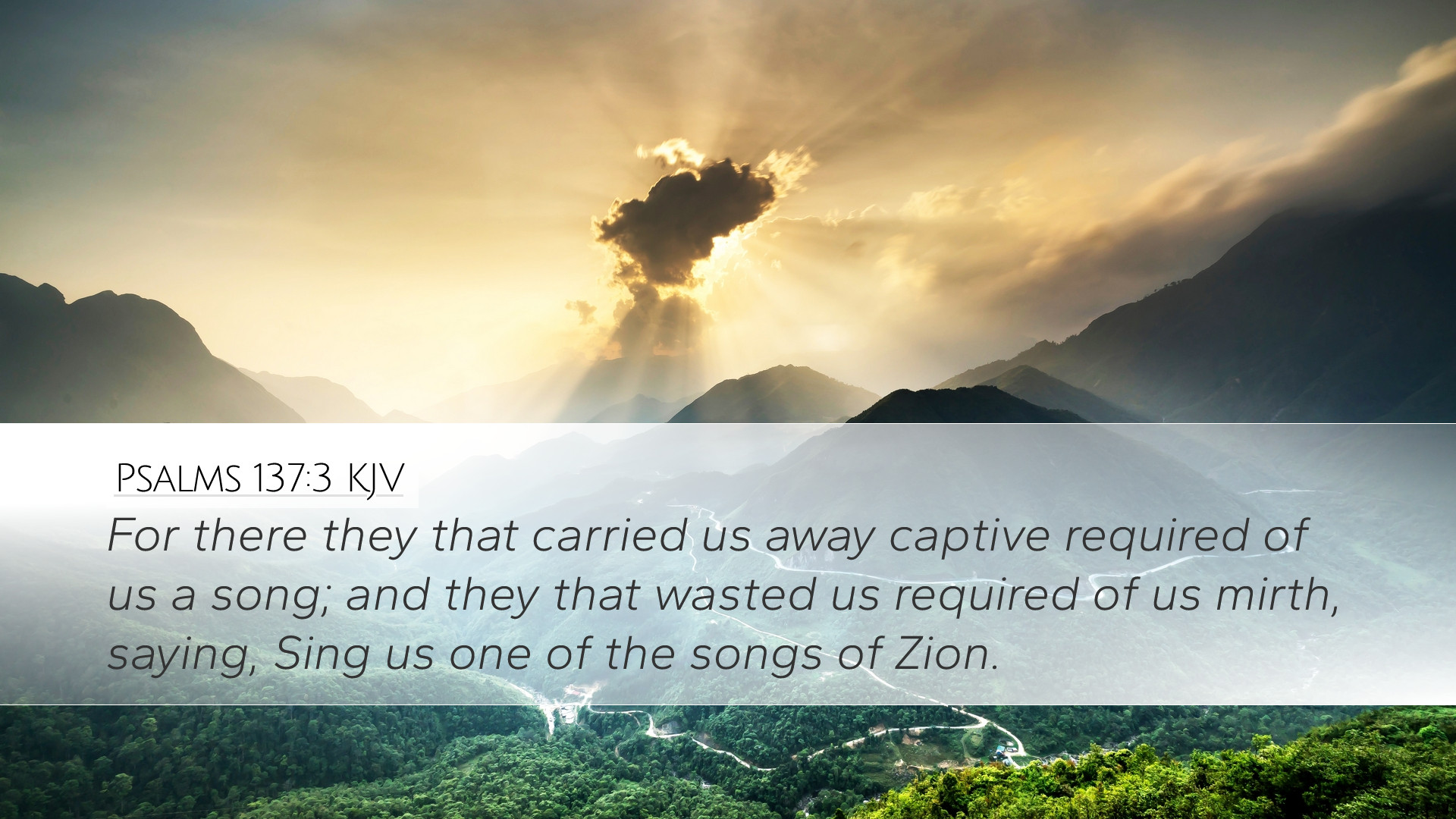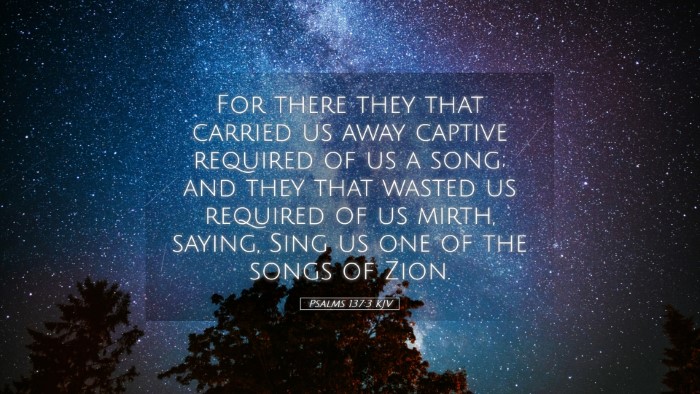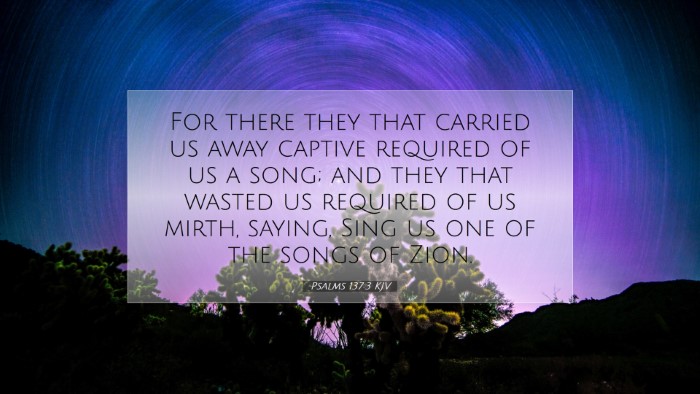Commentary on Psalms 137:3
Psalms 137 is a poignant expression of sorrow, longing, and remembrance, encapsulating the tumultuous experience of the Israelites during their Babylonian captivity. Verse 3 specifically articulates the profound grief experienced by the exiles and their inability to worship in their homeland.
Text of Psalms 137:3
"For there our captors asked us for songs, and our tormentors demanded songs of joy; they said, ‘Sing us one of the songs of Zion!’"
Historical Context
This psalm is situated in the aftermath of the Babylonian conquest of Jerusalem, where the Israelites found themselves in a foreign land, stripped of their temple and home. The captors' demand for songs reflects a mockery of the Jewish faith and tradition, revealing the tension between cultural identity and foreign oppression.
Insights from Matthew Henry
Matthew Henry comments extensively on the emotional resonance of verse 3. He notes that the captors, in asking for songs, express a misunderstanding of the nature of the Israelite's worship, demonstrating that captivity not only disrupts physical safety but also spiritual integrity. Henry emphasizes:
- Mockery of Worship: The request for songs is rooted in derision rather than genuine interest in the worship of God.
- Longing for Zion: The exiles’ sorrow is palpable as they are reminded of their homeland and the joy of their worship there.
- Emotional Struggles: Henry reflects on how the demand for joy amid suffering is a universal experience, making the lament resonate with broader human experiences.
Insights from Albert Barnes
Albert Barnes provides a critical analysis of the psychological implications of verse 3. He discusses how the Israelites' response to the captors' demand encapsulates both their desperation and nostalgia:
- Cultural Alienation: Barnes highlights the painful contrast between the joy of worship in Zion and the sorrow in Babylon. The captors’ demand is a stark reminder of cultural alienation.
- Identity Crisis: He underscores that the Israelites are grappling with their identity as God's chosen people, feeling disconnected from their identity and heritage.
- Longing as a Form of Faith: Barnes points out that this verse reflects a deeper longing for God, suggesting that the very act of remembering Zion is a testament to their unwavering faith.
Insights from Adam Clarke
Adam Clarke offers a theological reflection on the nature of joy and suffering as depicted in Psalms 137:3. His insights dissect the complexities of exilic emotions:
- Theological Implication: Clarke suggests that the demand to "sing the songs of Zion" represents an inappropriate profaning of what is sacred, as it disconnects joy from the context of genuine worship.
- Hope Amidst Despair: He illuminates how this lament carries a thread of hope, envisioning a future where the exiles might return to Zion and worship in freedom.
- Community Dynamics: Clarke also reflects on the corporate nature of mourning in exile, where the communal identity causes shared grief - a vital theme in understanding collective spiritual experiences.
Theological Reflections
The psalmist's lament underscores several theological themes relevant to both personal and communal faith experiences:
- The Nature of Worship: It invites deep reflection on what true worship entails, not merely a performance of songs but a heartfelt engagement with God.
- The Sovereignty of God: The context of exile serves as a reminder of God's sovereignty and justice, even in times of apparent abandonment.
- Restoration and Hope: The historical promise of Zion becomes a metaphor for spiritual restoration and hope that transcends current suffering.
Conclusion
Psalms 137:3 encapsulates the heartbreaking experience of exiled worshippers yearning for the sacred land of their heritage. The insights gleaned from Matthew Henry, Albert Barnes, and Adam Clarke collectively offer a rich tapestry of theological reflections that highlight the enduring nature of faith amidst suffering. For pastors, students, theologians, and scholars, this verse serves as a reminder that our longing for God can coexist with our present struggles, and it invites us to reclaim the joy of worship that true faith embodies.


